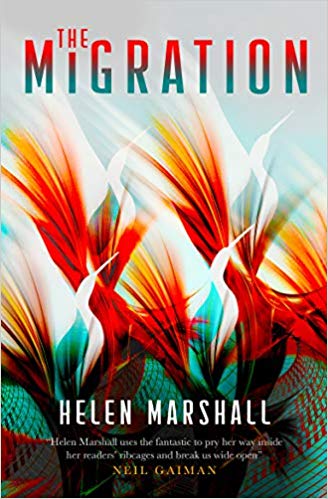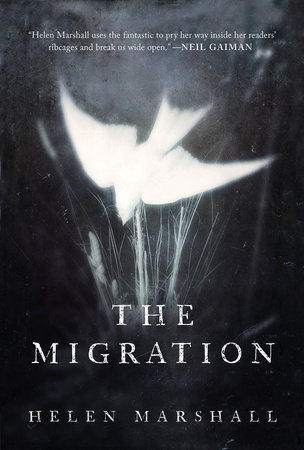My books of the year are alive and infected with horrible, gorgeous human stuff.
There were some excellent short story collections this year, of which Tracy Fahey’s NEW MUSIC FOR OLD RITUALS impressed me greatly with its storytelling power. Andrew Hook’s THE FOREST OF DEAD CHILDREN disturbed me and filled me with dread and wonder. I also frankly loved Rob Shearman’s chapbook teasers for WE ALL TELL STORIES IN THE DARK, his madly ambitious 101 short stories project. I read those and Leonora Carrington’s COMPLETE STORIES at the same time and the two authors sort of merged in my mind to create one, supremely messed up hilarious nightmare machine.
THE HEAVENS, by Sandra Newman, blew my mind and blasted me out of my complacency about what novels can do and be. It was compelling and bitter and full of complexity and magic.
Talking about what novels can do and be, it would be remiss not to mention DUCKS, NEWBURYPORT, Lucy Ellman’s transcendently lucid journey through an ordinary mind. It was boring, very boring in places. But hilarious and brilliant. It will change things, this book. It will change novels, anyway.
Julie Travis’ novelette TOMORROW, WHEN WE WERE YOUNG, reminded me somewhat of THE HEAVENS but then it went one better in allowing me to live in its strange and wonderful world. Wonderful and perfect are the words I used to describe this book. It is full of love and humour, awe, strangeness, sorrow… I enjoyed it immensely and only wished I could stay forever.
GAMBLE by Kerry Hadley-Pryce is a novel I’ve talked about a fair bit this year, and for good reason. It is brutal in its precision, a skewer to the psyche, funny and so very, very sinister. Speaking of sinister things, I discovered a new writer, who I think is exceptional, in the form of Rebecca Gransden. I reviewed her novel ANEMOGRAM. on this blog. Her writing is unutterably strange, haunting, violent and funny. I don’t know where she will go with it but what I’ve read so far strikes me as profoundly brave and vulnerable, and I think she will do something great.
Another debut novelist, Michael Walters, impressed me with his book THE COMPLEX, which is far from perfect, and all the better for that. It’s a book I’ve thought about a lot since first reading: it has been growing on me/in me/around me. I was also reminded of it when reading Helen Phillips’ THE NEED, also featuring a stag-like being, but in a very different mode. This is a deceptively simple book that does something completely and utterly weird. I loved it.
Two books by Aliya Whiteley, THE LOOSENING SKIN and SKEIN ISLAND, impressed and disturbed me. I loved Deborah Levy’s weird and moving THE MAN WHO SAW EVERYTHING and Anna Stothardt’s gripping and unbelievably good THE MUSEUM OF CATHY. Each of these writers are doing their own, strikingly original things and keep putting out incredible book after incredible book.
But my absolute favourite read this year must be Charles Lambert’s THE CHILDREN’S HOME. This is a book that’s hard to describe, since it resists and transcends and transforms itself as you read it. It is brilliant. When I finished it, I cried. It’s the kind of book you can’t even talk about because it’s too good, you’re too passionately in love with it, too in awe of its brilliance, and you don’t want to break it by understanding it too well. Just read it.
A book I cannot recommend at all is Paul Kingsnorth’s SAVAGE GODS. I can’t, because in fact he wrote it just for me. Or really, he wrote it for himself, and he’s a man, and that matters. But nevertheless, it was also for me, and I found it beautiful and cruel and sorrowful and true, and as someone who is also lost in that same wood, or one adjacent, I am very grateful for his story.


